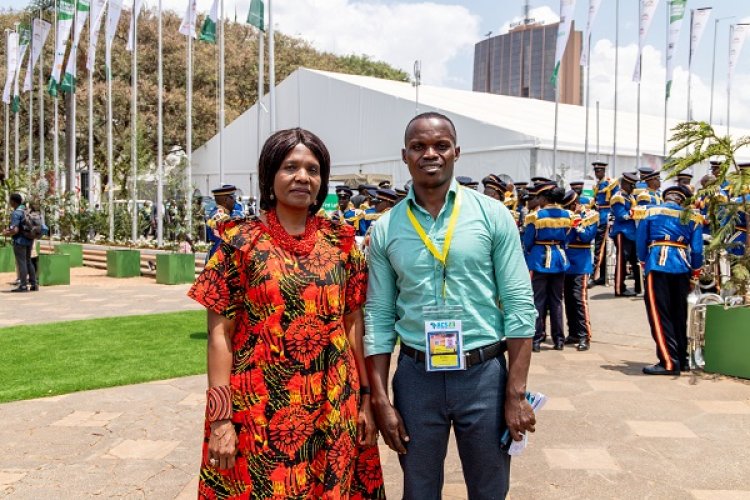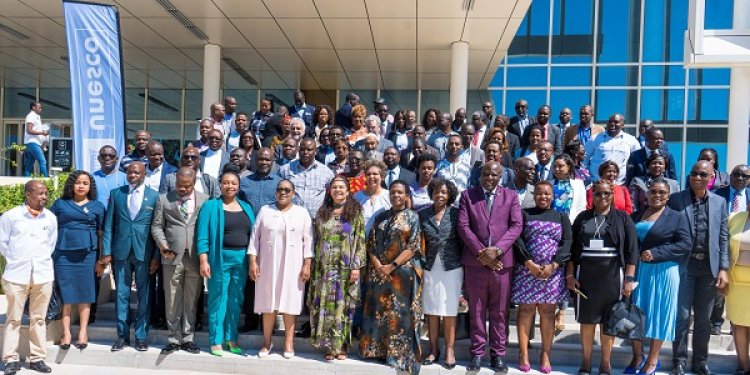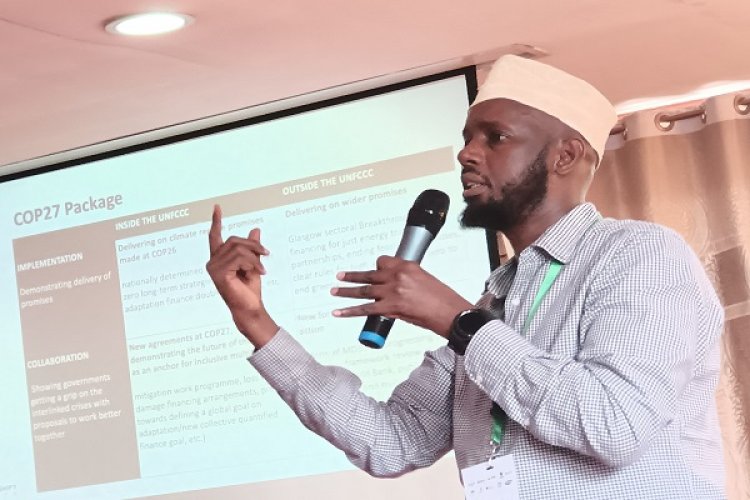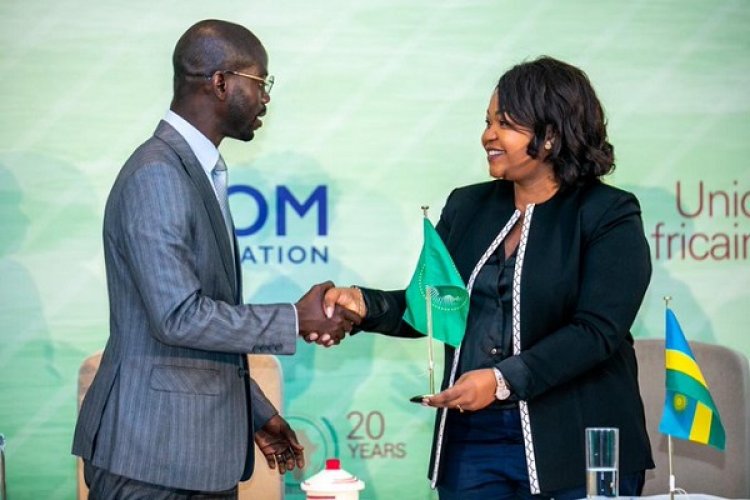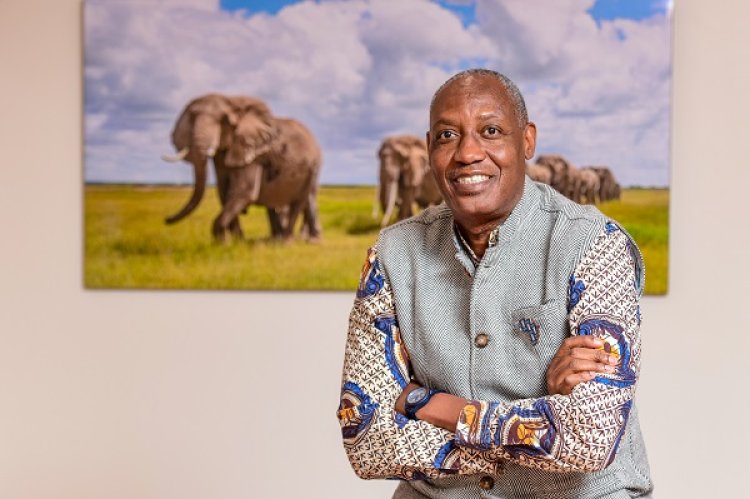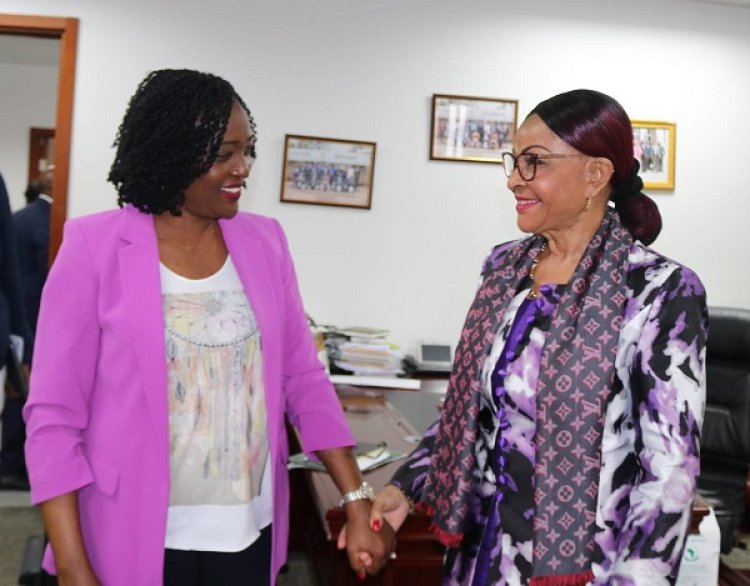As African leaders discuss climate change policy issues at United Nations general assembly this week and beyond, all eyes will be on media and journalists in Africa to break down outcome of the discussions for millions of people reeling from toll of increasingly warming planet on the continent.
In particular, when leaders head to the UN climate negotiations between industrialised nations and developing countries (COP28) later this year, people and communities losing livelihoods to destructive effects of climate change will be keen on understanding how the outcome lead to change or potentially improve their situations.
Already Africa demands on climate issues as formulated in resolution of the inaugural Africa Climate Summit held early this month in Nairobi have taken centre stage in debates at ongoing UN General Assembly this week where leaders reiterated calls on industrialized nations to, among other things, pay for environmental disasters inflicted on the continent.
“Africa is warming faster than the rest of the world,” South Africa’s President Cyril Ramaphosa said in his address to the general assembly on Tuesday. “Centuries after the end of the slave trade, decades after the end of the colonial exploitation of Africa’s resources, the people of Africa are once again bearing the cost of the industrialization and development of the wealthy nations of the world,” he said.
Demands by the South African leader were echoed by his peers in subsequent addresses, and will rank among key contentious issues of the week-long assembly.
However, how much these debates catch the attention of the media locally and ways African journalists break them down for the ordinary people back home remain an issue of concern.
Also read: Weighing the future of Africa media: Experts’ take
There have been grievances from a section of news consumers that journalists fail to communicate properly climate policy discourses to the public. In fact, many criticised the coverage of the Africa Climate Summit indicating that “journalists chased the quick story instead of chasing the real one”, among other ‘accusations’.
For some, the coverage generally falls short of simplifying science jargons with words such as carbon trading, blue economy, green hydrogen and others used by experts and leaders making it hard for the public to digest content.
The status quo is, according to industry players, to blame on factors ranging from lack of specialization at newsrooms and issues at journalism training schools or universities which barely updated their decades-old curriculum.
There is also the fact that now many financially-constrained newsrooms can’t afford to deploy reporters at the summits where climate issues are discussed or to fields to bring out voices of people and communities at the forefront of climate change.
The public, however, expect journalists to do a better job as Africa presses to have its voice heard in the lead up to COP28 and following the resolution in the Nairobi declaration making Africa Climate Summit as a biennial event to set new vision in light of emerging global climate and development issues.
Centuries after the end of the slave trade, decades after the end of the colonial exploitation of Africa’s resources, the people of Africa are once again bearing the cost of the industrialization and development of the wealthy nations of the world
Cyril Ramaphosa, President, South Africa
To discuss these issues, NewsPaper Africa’s Johnson Kanamugire spoke to Wynne Musabayana, Head of Communication at the African Union to get her perspective.
She leads a team that ensures journalists’ access to summits either physically or virtually, handles media interview requests, on top of distributing the statements and leaders’ speeches, among other things.
The AU also runs a Media Fellowship programme designed to nurture the next generation of journalists and content creators to take charge of the narrative of developments on the continent.
Excerpts:
——–
The AU has been putting resources toward building media capacity, what impact is that having in light of issues that journalists currently face?
We are seeking to ensure that our media is as capacitated as possible to engage on African development issues.
We are supporting the various other initiatives on the continent, like the education that you receive when you’re in school, the training that you receive when you go to journalism school, and the experiences that you gather along the way, then we are saying let’s put all that together.
And then let’s capacitate the media to know about African development issues, to appreciate what has gone right, to appreciate what is not going right and to appreciate what is being done to correct what is not going right.
Then when the media have all that information, they can now produce a narrative that is accurate, a narrative that is devoid of stereotypes.
We have the first cohort of the African Union Media Fellows. We’re now going into the second one we’ve seen a dramatic improvement and increase in the appreciation of African development issues.

With regard to media coverage of Africa climate issues and the fact that much of the reporting is full of jargons, in which ways do you expect journalists to break down these issues?
We place emphasis on making sure that the media get to understand these issues, the media get to have access to this information, because it is the media that forms the bridge between institutions and the people.
As you say there is a lot of jargons in use. We are really encouraging media to go into data journalism, to make sure that things are quantified because it is much easier even for the people that you say do not understand the jargons, but they will understand figures.
If they see 100 million people they will understand the gravity of it. If they see that Africa only gets for example 12 per cent of the financing for climate action, they will understand that that is a very small amount.
Also read: Africa: Media fraternity key asks to Govts on freedoms
If they get to hear that Africa only contributes this little percentage to the climate damage that we are seeing, they will understand that and realize that as Africa we have contributed very little to the challenges of climate change but all of us are paying for it.
Also some of the issues that the media should be breaking down to the African populations is this awareness that many of our economic sectors are very sensitive to climate.
So if we look at forestry, if we look at agriculture, if we look at fisheries, even the nexus between climate change and the spread of public health issues. So all these issues are in the mix. So these are some of the elements that the media really should be interrogating.
What are you doing to see that coverage happening?
One of the things that we do very well at the African Union is to make sure that the experts are available to talk to the media, so that really there is very little room to say that we don’t have access to information.
We are trying to make sure that information is not just provided, but we are available to answer the questions. We provide the people with the technical, professional and political impact to be able to talk about these things.
False narratives and stereotypes have in instances been an issue when it comes to media reporting of developments on the continent. How did that play out with climate change reporting?
Firstly, let me congratulate the African media for the work that they do because they do so much sometimes with very little resources.
We saw that during the COVID 19 pandemic. And we see it continuing now even in the level of interest that is coming from the media. What I would say is that the best way that we can beat stereotypes is to give information, because information is knowledge, information democratizes societies, information leads to people making conscious decisions based on knowledge.

